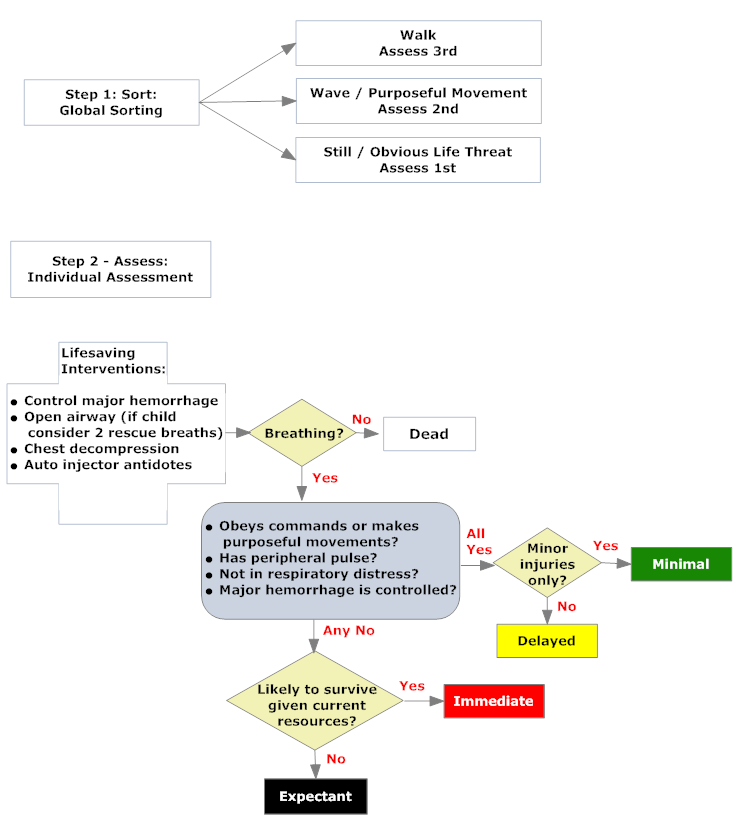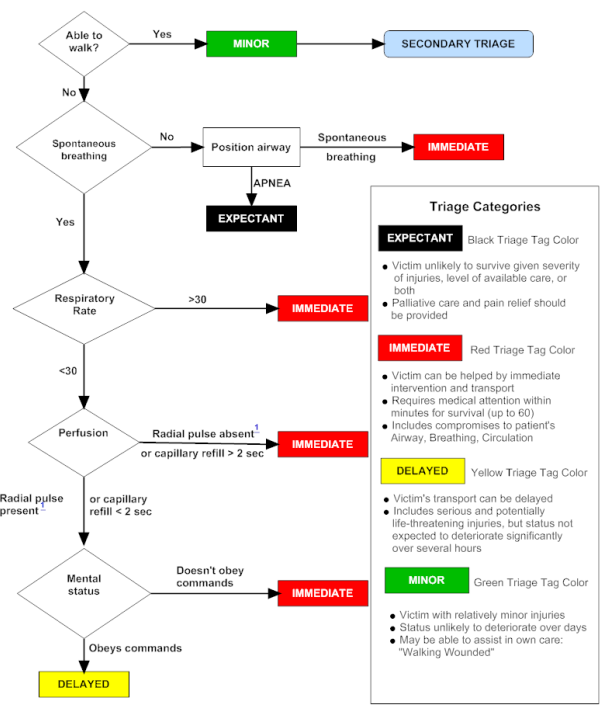
August Tip of the Month - Mass Casualty Incidents
Declare Early, Triage Smart, Stay Organized.
A Mass Casualty Incident (MCI) is a term that encapsulates situations where the number of casualties overwhelms the immediate available resources, challenging the response capabilities of emergency services and places strain on the healthcare system.
These incidents are marked by a surge in casualties placing pressure on responders to act quickly and engage in complex interagency coordination. Beyond the immediate scene, MCI’s can have lasting psychological and community-wide impacts, emphasizing the importance of preparedness, communication, and post-incident support. Recognizing these challenges is essential to strengthening response systems and enhancing frontline readiness.
Remember: It’s not about a specific number, it’s about CAPACITY vs. DEMAND
Traditional MCI Roles:
In the management of a MCI, various roles may be assigned depending on the size and complexity of the incident, this may include: Site Coordinators, Incident Managers, Communication Officers, Scribes, etc. However, when operating with a two-paramedic crew, the primary roles are the Triage Officer and the Incident Commander. These roles are typically assumed by the first arriving ambulance crew. As additional personnel arrive, they may be assigned to other roles as needed. These individuals are the first ones in and the last ones out.
Triage Officer vs. Incident Commander
| Triage Officer | Incident Commander |
|---|---|
|
|
Triage Methods:
Two common methods used across the NW Region:
- SALT (Sort, Assess, Lifesaving Interventions and Treatment/Tag)

2. START (Simple, Triage, And Rapid, Treatment)

Triage is a critical component in effective MCI management. By swiftly assessing and categorizing casualties based on severity, paramedics can prioritize medical care for those with the greatest need. Paramedics should familiarize themselves with the guidance and training provided by their service operator or base hospital.
Remember: Always affix triage tags directly to the patient. Tags left on the ground or in a pocket can lead to delayed treatment and unnecessary re-triaging.
Mass Casualty Incidents are dynamic, high-pressure events that demand rapid decision-making, clear communication, and coordinated teamwork. By understanding the key principles of MCI response and staying focused on role clarity, safety, and triage efficiency, paramedics can help bring order to chaos and improve outcomes in even the most challenging situations.
Key Points to Remember:
Call it early - If resources are overwhelmed, declare an MCI.
Establish an incident command - Assign roles and maintain structure.
Triage, tag, and move on - Prioritize rapid assessment over treatment.
Communicate clearly - Use structured radio reports and follow Incident Command direction.
Safety first - Ensure the scene is secure before committing crews.
Previous Tips
-
February Tip of the Month - Owning the Outcome: Ethics, Failure, and Legal Responsibility
-
January Tip of the Month - Mean Arterial Pressure "MAP" - The Rule of 65
-
**AMENDED** Winter Emergencies: Recognition and Care for Hypothermia and Frostbite
-
November Tip of the Month - Not "Just" the Flu: Recognizing High-Risk Respiratory Illness
-
October Tip of the Month - Diabetic Emergencies
-
September Tip of the Month - Sepsis
-
August Tip of the Month - Mass Casualty Incidents
-
July Tip of the Month - Breaking down Burns
-
June tip of the month - High-Quality CPR & Defibrillation
-
May Tip of the Month - Prehospital Trauma Management